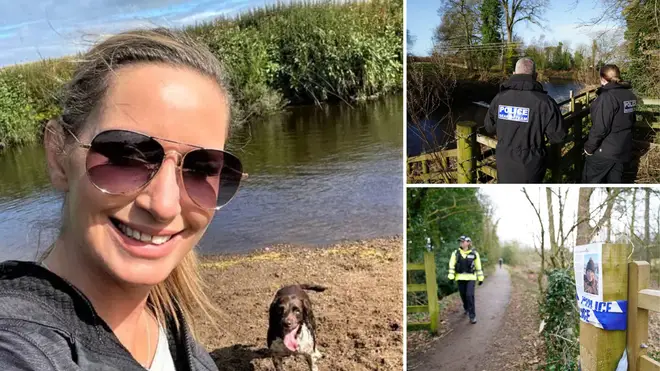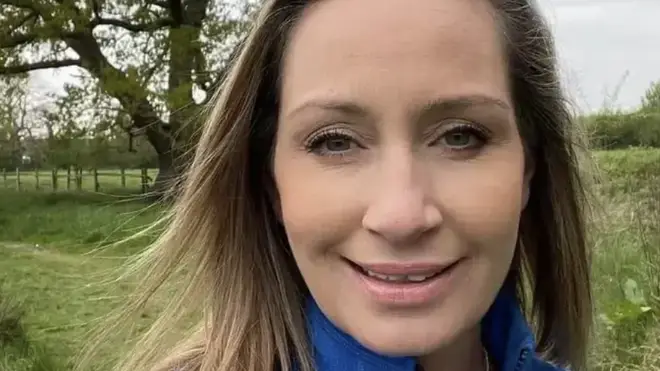
Nick Abbot 10pm - 1am
21 November 2023, 10:11 | Updated: 21 November 2023, 11:05

Nicola Bulley police have been criticised for failing to contain frenzied social media speculation about her disappearance.
A review into Lancashire Police also found that disclosure of personal information about Ms Bulley's health struggles was "avoidable and unnecessary".
The force came under fire for the way it made public details of Ms Bulley's medical situation amid a social media frenzy earlier this year, with even the Prime Minister expressing concern that private information had been disclosed.
The body of Ms Bulley, 45, a mother-of-two, was found in the River Wyre on February 19, about a mile from where she vanished, while walking her dog in St Michael's on Wyre, Lancashire, on January 27.
An inquest concluded her death was accidental, that she fell into the river on the day she disappeared and died almost immediately in the cold water.
Ms Bulley's family say they continue to grieve her loss and do not want to comment on the report.

Body found in river confirmed as Nicola Bulley
The review, published on Tuesday, found that in policing terms the missing persons investigation was well handled, but that the force had lost control of the public narrative at an early stage.
Senior officers were accused of "insufficient focus" and errors of judgment, with the report questioning the culture of the force.
They "observed but did not act" and failed to show sufficient support to lower ranks, the report claimed.
A huge level of interest coupled with wild speculation on social media put the force under intense pressure during the investigation into Ms Bulley's disappearance.
The frenzy of speculation saw 6,500 international articles written about the hunt in the space of one day, and TikTok videos with the hashtag of her name had 270 million views.
Lancashire Police press office logged more than 500 media calls and 75,000 inbound social media comments on the case in about one month.
As levels of public confidence in the force were falling, the case should have been declared a critical incident, the review said, with greater focus on the media and earlier use of family liaison officers.

The review also said the diving expert who assisted search operations in the case of missing Nicola Bulley "caused challenges to the investigation".
Peter Faulding suggested to the media that the police’s equipment was too "low-tech" to detect a body.
After his comments, Ms Bulley’s family asked police for SGI to assist the case.
While police investigators were told they were able to secure the same equipment used by SGI, the force went ahead with the family’s request to prevent "negative press".
Mr Faulding met with a chief inspector who provided “suitable, robust advice about the information he is passing to the media - unhelpful to the investigation, the family and wider community”.
The report also added that police appeared to have presented Mr Faulding with an NDA instructing SGI not to discuss the search with anyone outside the investigation - but SGI claimed that such an NDA had never been discussed or signed.
Responding to the review, Mr Faulding revealed that he discovered a "human form" within six minutes of his search on February 7 and went on to inform police.
He said he was told the target was found to be "nothing" so made a request to re-scan the area. But police refused, insisting that the area was clear.
Mr Faulding added that after he left the search police made no request for his search records or sonar data.

Chief Constable Andy Marsh, who leads the College of Policing, said: "Throughout our work we have had Nicola's family and friends in our thoughts.
"The purpose of the review was not to attribute blame but identify areas of learning for the constabulary and wider policing.
"The decision to not call the investigation a critical incident, despite it meeting the national definition, set the tone within the constabulary and led to several challenges.
"The most notable of these was the way the constabulary released personal information about Nicola which was avoidable and unnecessary.
"While we have not shied away from criticism, there are also many areas of Lancashire Constabulary's response that should be commended, including an exemplary investigation and a well-conducted search.
"At the heart of the investigation was Nicola. I am left in no doubt that she and her family were foremost in the minds of officers and staff throughout the search."